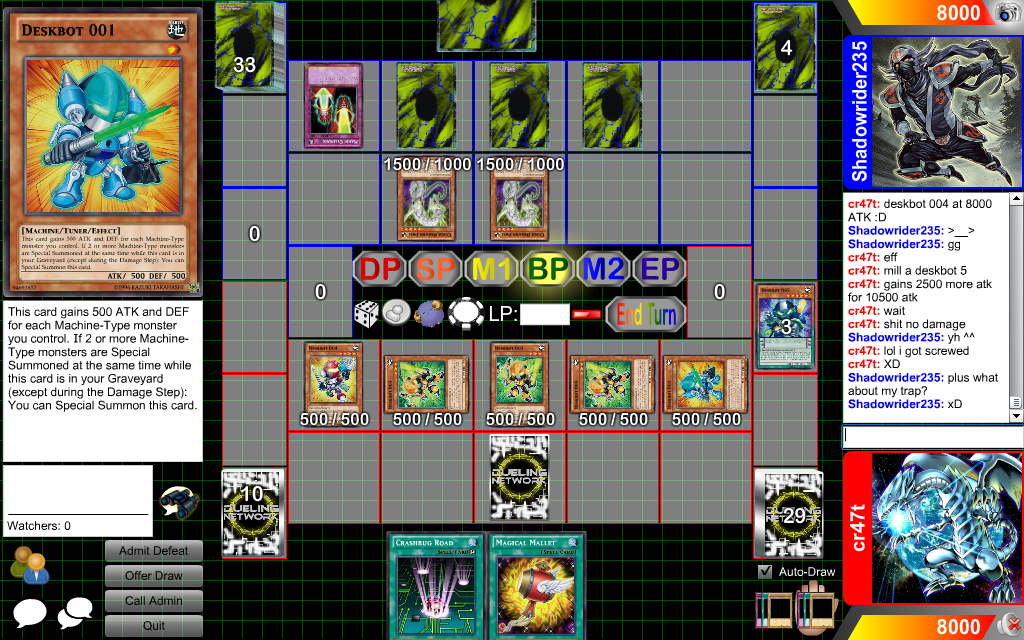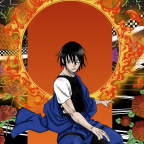-
Content Count
47 -
Donations
$0.00 -
Joined
-
Last visited
-
Points
1,580 [ Donate ]
Content Type
Profiles
Forums
Calendar
Articles
Everything posted by cr47t
-
i'll respond to these and then imma just make a new thread for the other things i wanted to talk about involving this, and i'll try to not post here after this because people seemed to be a bit riled up (or at least that was my interpretation - it's hard to tell on the internet) by the title question, and i really don't want this to turn into any more of a fight. PT 1: clarifying the original intent of my thread first of all, i want to clarify something i should have made clear before - i wasn't trying to say that conflict is unneccesary or bad, just that i think a story could prioritize something above conflict and still be of quality, but by that i am not calling conflict dismissable; i guess a better way of wording the question would be "is conflict as the central focus always neccesary?" my original point was that conflict between characters doesn't have to always be *the only* thing that matters, even if it conflict in general turns out to always be *one of* the things that matters most. as a writer who likes to try new things in writing i'm not the kind of person to hold onto any writing guideline as absolute. but i understand that some rules matter a lot more to some people than others, and that's what i think is happening here. part 2: responding to the quote i'm not going to respond to "the ten... is literally conflict" because i don't want to keep going back and forth causing a scene, and i talked about both of that in the first part of the post. "motivation [as] conflict between action and inaction...": yes, motivation is something i wouldn't ditch at all. but i think of it more as a cause of action. conflict between action and inaction is more of a internal conflict scenario rather than what motivation is by necessity. not going to comment on 4koma because i never meant for that to get so much focus. can a story be interesting w/o conflict? i'm not going to answer that question with a yes or no b/c i want people to make up their own minds even if that leads to diff. answers than mine. now that i think of it, totoro, the example i mentioned above, could probably fit into less than 5 pages: i can't quite put into words what about it makes it special to me, it's kind of a personal thing, but i expect it could be more like the experience part than the story part. a painting can tell a story but it doesn't have to and there are many that can't. a movie doesn't have to have a story, nor a book does, nor a game, but a story itself has to have a story, obviously. i still don't want to go in circles around what that means since that's a very person-to-person answer. i know that looks like a non-answer and a copout, but i'm just tired and want to move on to other things, if that's ok.
-
i'd nominate finale of Rear Window, and a few scenes from M [1931, dir. Fritz Lang] such as the "Elsie!" montage, and of course the trial at the end. (it's actually really good)
-
BUMP and attempt to get the conversation to a more constructive place? Recently read a post on reddit in this thread Hopefully this can settle this. I also think that assuming there is a conflict in kishotenketsu (i still think it can t6echnically be done w/o it even though it's supremely difficult to the point that are there any successful examples? anyway if there is a conflict in a kishotenketsu structure) then either the conflict itself or at least the resolution would be based on internal discovery rather than external action": the endpoint is more to fall in line with an enlightened character or world, rather than a trampled villain. thoughts? (i hope this isnt as wrongheaded as the original post link has been shown to be)
-
im surprised to see mononoke at 1 and ponyo on the same level as totoro (havent seen kiki's in a long time). i didn't really understand the appeal of mononoke when i watched it, so what is it other people see in it that i might not, that would put it above spirited away (my preferred of the two)? and i like ponyo and all but what puts on the same level as totoro (my personal favorite)?
-
i cant cover everything so heres just a few things I'll think about this, cause there's a lot to take in, but I do think you make some reasonable points (for example, your description of Totoro was on-point and illustrated how me and the article missed the point - more on that later). i'll look closer into Derrida. i had a negative viewpoint of postmodernism (the idea, not the people associated) to begin with but its nice to know i was wrong. im just going to touch on the four panel thing - the example only gave 2 examples but now that i think of it a different format would be nice SUMMARY all in all i think i asked the wrong question(s) because i wasn't expecting the convo to go in this direction so ill just try to think about what i meant and then post on that later
-
allow me to provide a rebuttal, please - this is a discussion thread, so i'd thought i'd try to continue the discussion. i'm going to use two examples: from popular film culture, My Neighbor Totoro; from more art-based or unconventional film (even for this), Mr. Hulot's Holiday (even though the latter isn't really kishotenketsu, but i'm only using it for this next point.) now, for the sake of clarity i'm going to use the word "plot" to refer to the story's sequence of events, either chronologically or in the order of their placement; they will both be the same for these two examples. under this definition and without explicit spoilers for the endings: Totoro's plot could be summarized as two girls moving to the countryside and meeting forest spirits there who come to help in a time of need. Hulot's is even more barebone by conventional standards: a man goes to the French beachside, enjoys the company, has a little adventure from time to time, and then leaves. i'd still say these are plots, but they certainly aren't the big plots (also called arch plots) that our genre/brand-oriented story culture (in America anyway) put emphasis on. (while Totoro does have a climax of sorts, it's not derived directly from a driving conflict, but indirectly from a miniature one, and it still works for those who care about the characters and their stakes involved). they have more in common with mini plot, and in some cases even borrowing from antiplot, as they deliberately play down the sequence of events, sometimes divert from it, or sometimes barely have one at all (as in the case of Hulot, which indeed evokes a rather surreal state of mind for me) in order to emphasize and evoke, in a more subtle way, some other aspect of the story, or(for Totoro, the thinking and seeing through a youthful lens; i already discussed Hulot). this brings us back to kishotenketsu: can you have a kishotenketsu plot without conflict? i think you can if you be creative; for example, in a story i'm planning, the conflict isn't so much in the actual sequence of events as it is in the main character's narration, as she tries to come to terms/reconcile with the endpoint of that sequence. but either way, what sets kishotenketsu apart is that the conflict, whether it needs it or not, does not have to be confrontational, so much as contrasting, or at most, very dissonant without 'blowing up' into a genre-style big plot. (PS. pill: how is the first example in the article, where she gives the can to someone else, have a driving conflict?) that's enough from me for now, as i posted this to hear from others not to expouse my own position. thoughts?
-
ghibli films? (all directors + the red turtle)
-
crossposted from YCM https://stilleatingoranges.tumblr.com/post/25153960313/the-significance-of-plot-without-conflict came across this a few weeks ago and wanted to know what you all thought of it. TLDR for article: there exists a alternative narrative structure, commonly known as "kishotenketsu", that is not driven by a central conflict (as most mainstream Western narrative structures are). It consists of a first part establishing the story aspects, developing them in a second, introducing a new and notable story element in the third part (called a 'twist' in the article but not neccesarily a plot twist) and in the fourth/final part, the third is 'reconciled' with the initial two. thoughts?
-

Name a fictional character, I'll say what mtg colors they are
cr47t replied to (o ×)'s topic in Miscellaneous
Neo from The Matrix (first movie) -
yugioh was better before they added pendulums
-
what?
-
millenium items?
-
just give the sun a few billion years, thar, and we'll see about that
-
complete with lore, powers, and character flaws, who wins? (GX does not factor in here, just to clarify)
-

One billion lions vs one billion lions' weight in neutron star matter
cr47t replied to cr47t's topic in Miscellaneous
well... i wasn't thinking an actual star, given that the mass of all humans would fit into the size of a sugar cube (roughly) in neutron star matter - i was thinking it would be closet to that. was i wrong? -
hi cow, just wondering, what is your ideal song length?


